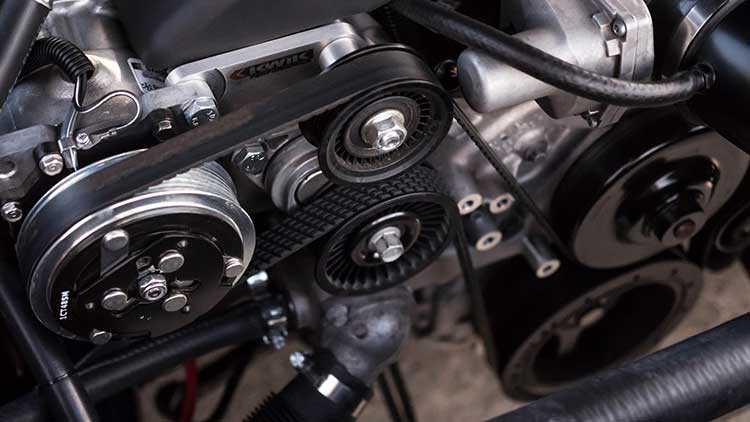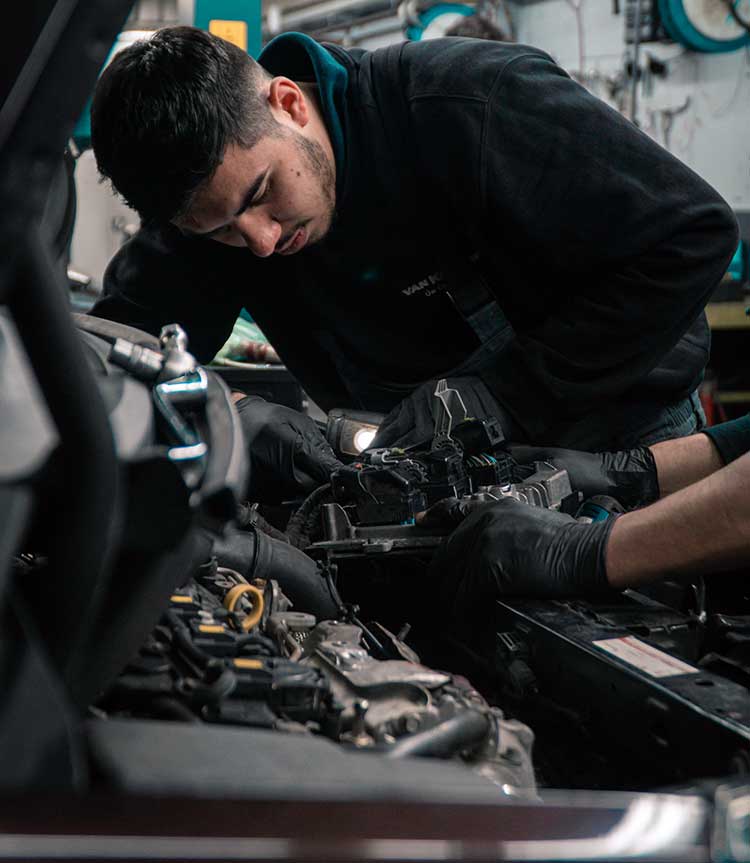Luke's Car Tips & Auto Maintenance Advice
Luke's posts regular blogs to offer you great information and advice about your car maintenance. Check back often for new posts. Search for a specific topic!
 Luke Shaff
Luke ShaffRegular maintenance is a crucial aspect of owning any vehicle. It not only ensures optimal performance but also extends the lifespan of the vehicle. One commonly recommended maintenance schedule for cars outside of oil changes is the 30/60/90K maintenance plan. In this blog post, we will explore what the 30/60/90K scheduled maintenance entails and why it is important. Additionally, we will outline the specific checks that should be conducted at each milestone.
 What is the 30/60/90K Scheduled Maintenance?
What is the 30/60/90K Scheduled Maintenance?
The 30/60/90K maintenance schedule is a recommended service plan that covers three significant milestones in a vehicle's lifespan: 30,000 miles, 60,000 miles, and 90,000 miles. These milestones often represent critical points where certain components or fluids require attention or replacement. By adhering to this maintenance schedule, car owners can address potential issues before they escalate into major problems, saving them from costly repairs down the line.
Importance of 30/60/90K Scheduled Maintenance
Preserving Performance and Reliability: Regular maintenance ensures that your vehicle operates at its best. By inspecting and servicing critical components, you can prevent problems that may compromise performance or reliability. Timely maintenance helps identify and resolve any issues before they worsen, allowing your car to run smoothly and reliably.
Enhanced Safety: A properly maintained vehicle is a safer vehicle. Neglected maintenance can result in brake failures, tire blowouts, or engine malfunctions, which can lead to accidents. The 30/60/90K maintenance schedule includes checks on crucial safety components, reducing the risk of unexpected failures and improving overall safety on the road.
Resale Value: If you plan to sell your car in the future, adhering to the manufacturer-recommended maintenance schedule can significantly boost its resale value. Potential buyers often look for well-maintained vehicles, as it suggests that the owner has taken good care of the car and that it is less likely to have underlying issues.
Specific Checks for Each Milestone:
30,000-Mile Maintenance:
Engine oil and filter change: Replace the engine oil and filter to ensure proper lubrication and prevent engine wear.
Fluid inspections: Check and top up coolant, brake fluid, power steering fluid, and transmission fluid as needed.
Belts and hoses: Inspect belts and hoses for signs of wear or damage.
Tire rotation and alignment: Rotate tires and ensure proper alignment for even wear and optimal handling.
Brake system inspection: Check brake pads, rotors, and calipers for wear and perform necessary adjustments or replacements.
60,000-Mile Maintenance:
 Air filter replacement: Replace the engine air filter to maintain proper airflow and maximize fuel efficiency.
Air filter replacement: Replace the engine air filter to maintain proper airflow and maximize fuel efficiency.
Spark plug replacement: Replace spark plugs to ensure efficient combustion and optimal engine performance.
Fuel system cleaning: Clean the fuel injectors and intake valves to remove deposits and improve fuel efficiency.
Suspension and steering check: Inspect shocks, struts, and steering components for wear or damage.
Battery inspection: Check battery terminals, cables, and electrolyte levels.
90,000-Mile Maintenance:
Timing belt replacement: Replace the timing belt (if equipped) to prevent potential engine damage due to belt failure.
Coolant system flush: Flush and replace the coolant to prevent overheating and maintain optimal engine temperature.
Transmission service: Replace the transmission fluid and filter to ensure smooth shifting and prolong transmission life.
Differential service: Inspect and service the differential fluid to maintain proper lubrication and prevent excessive wear.
Exhaust system check: Inspect the exhaust system for leaks, damage, or excessive rust.
The 30/60/90K scheduled maintenance plan is an essential aspect of responsible car ownership. By following this maintenance schedule and conducting the recommended checks at each milestone, you can optimize your vehicle's performance, enhance safety, and prolong its lifespan. It is crucial to consult your vehicle's owner's manual or seek professional advice to ensure that you address all the specific requirements of your car's make and model. Remember, investing in regular maintenance today can save you from costly repairs and headaches in the future.